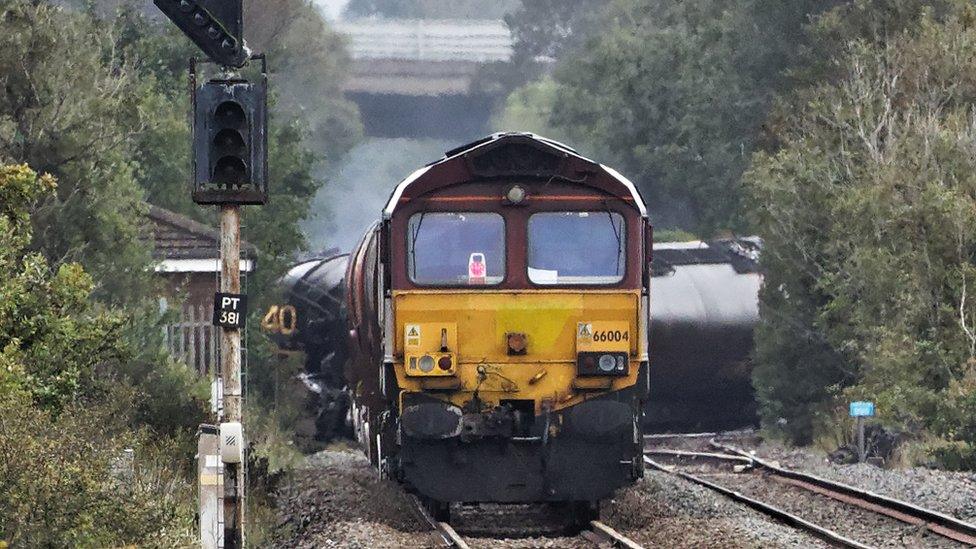Llangennech oil spill: Cockle beds reopen after train crash
- Published
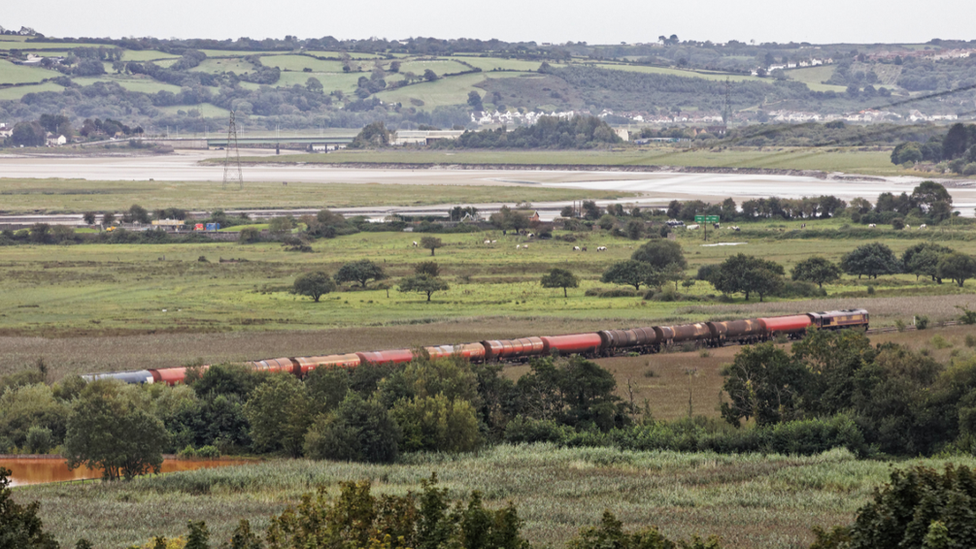
Diesel spilled into the nearby Loughor Estuary, a part of the Carmarthen Bay and Estuaries Special Area of Conservation
Cockle and shell fisheries which were closed after a train derailment caused a major diesel spill, have reopened.
Ten wagons, each containing 75 tonnes of diesel, derailed and spilled oil into the Loughor Estuary at Llangennech, near Llanelli, in August.
Local cockle pickers had expressed concern about consumer confidence in their product following the spill.
Three rounds of testing found no evidence of contamination of shellfish, the Food Standards Agency (FSA) said.
The Burry Inlet Cockle Fishery and other shell fisheries in the area had closed since the derailment on 27 August.
A huge clear-up operation ensued after hundreds of tonnes of diesel spilled into the estuary, part of the Carmarthen Bay and Estuaries Special Area of Conservation.
Announcing the reopening, Natural Resources Wales (NRW) said "extensive sampling and monitoring" had taken place which had found oil contamination "within statutory limits".
More than 70% of the diesel spilled had either evaporated or biodegraded, NRW added, and the remainder has dispersed naturally in the wider environment.
An FSA spokeswoman said: "A programme of surveillance and monitoring over the winter period will continue, to ensure the ongoing safety and quality of the shellfish."
Llangennech train fire: Wreckage on the rail tracks
NRW said the clean-up operation is now in the "recovery phase" and aims to reduce any potential impact locally.
"The reopening of the shell fisheries is a significant step forward in the road to recovery, and an indication that the multi-agency and specialist work to mitigate the impact is working," said Martyn Evans, of NRW.
"The measures have been significantly tested by heavy rains and Storm Alex, with no further seeping of diesel, but we will not be complacent in the management of this site."
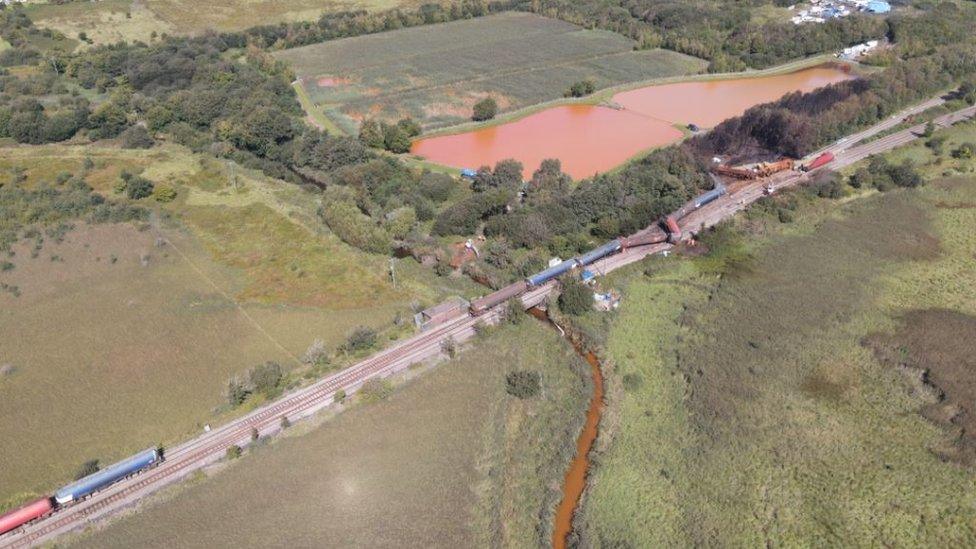
More than 70% of the diesel spilled had either evaporated or biodegraded, NRW said
The Rail Accident Investigation Branch is continuing to investigate the cause of the derailment.
Its preliminary investigation found the brakes on a wagon became jammed.
- Published6 September 2020
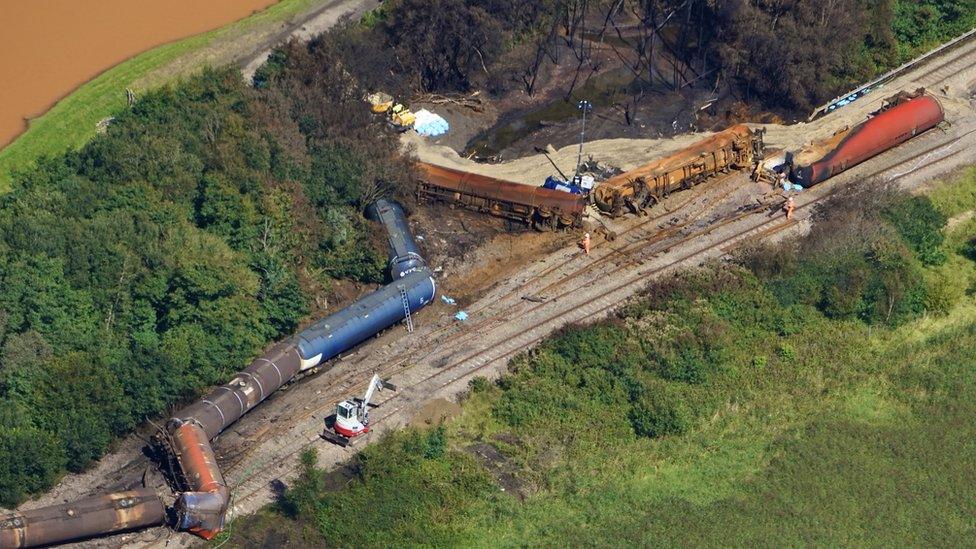
- Published30 August 2020
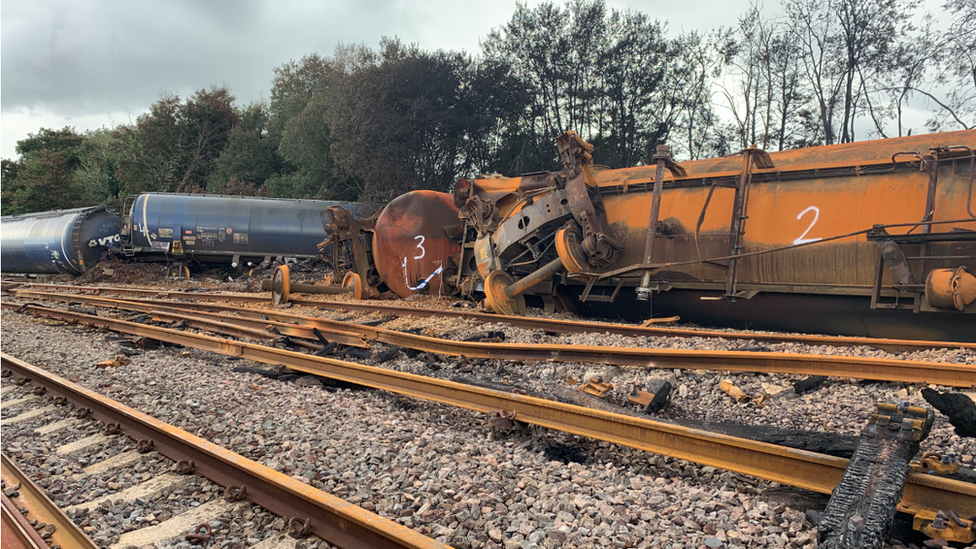
- Published28 August 2020
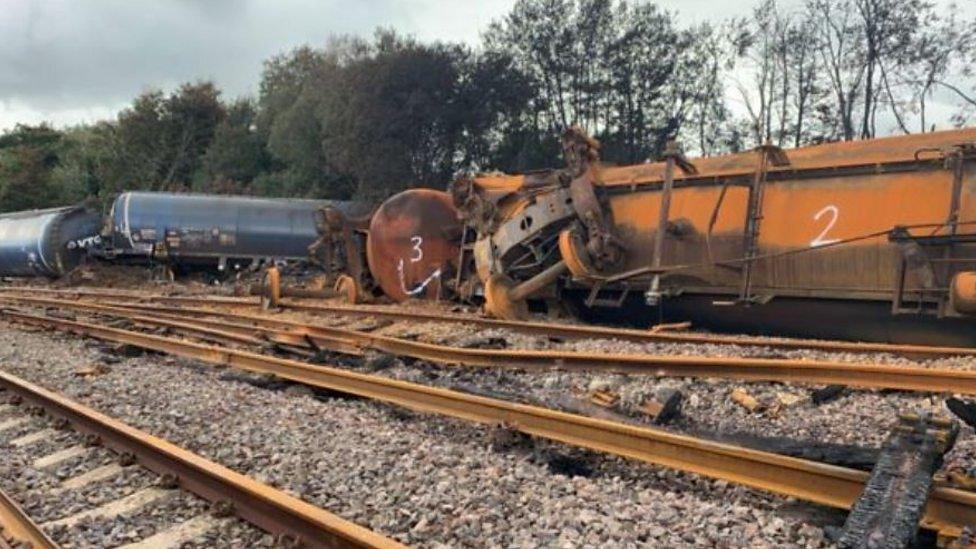
- Published27 August 2020
